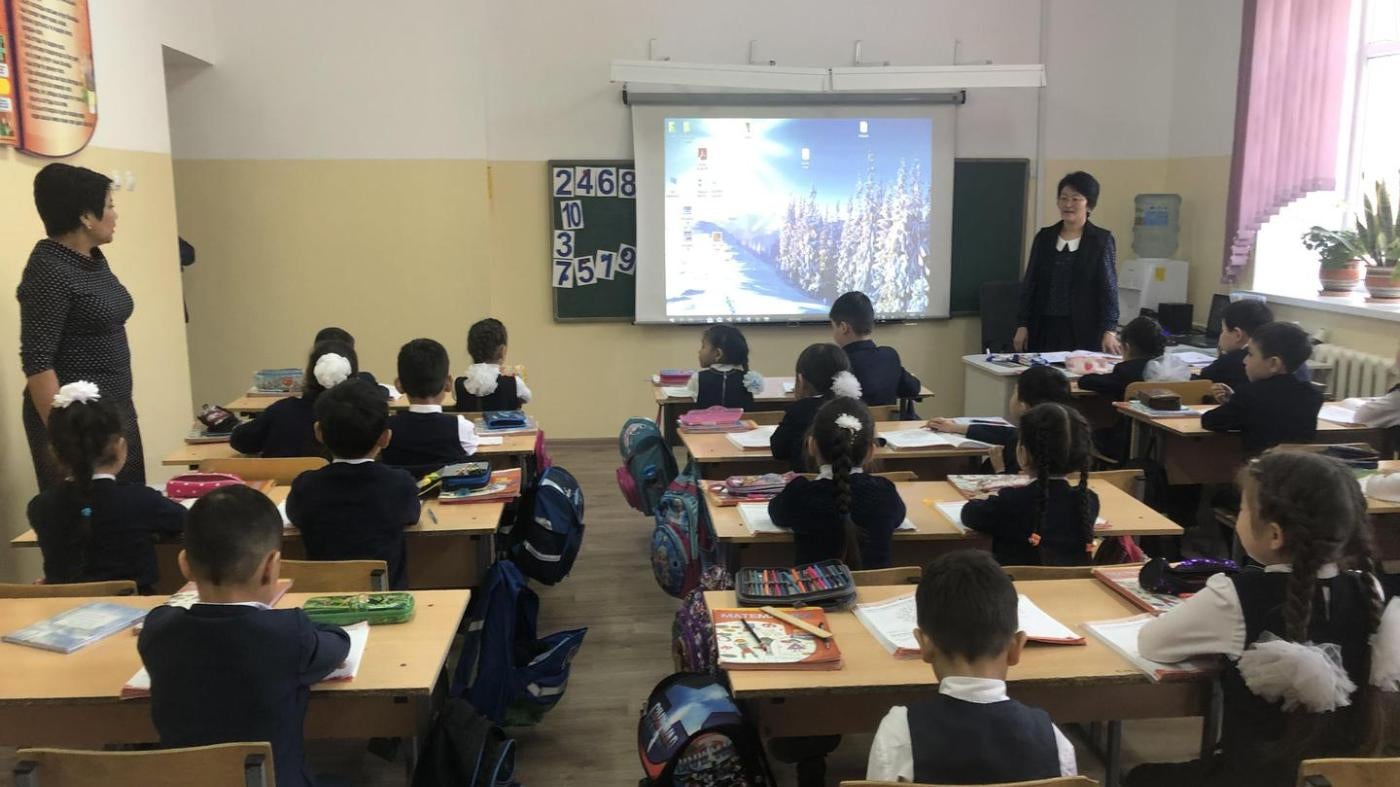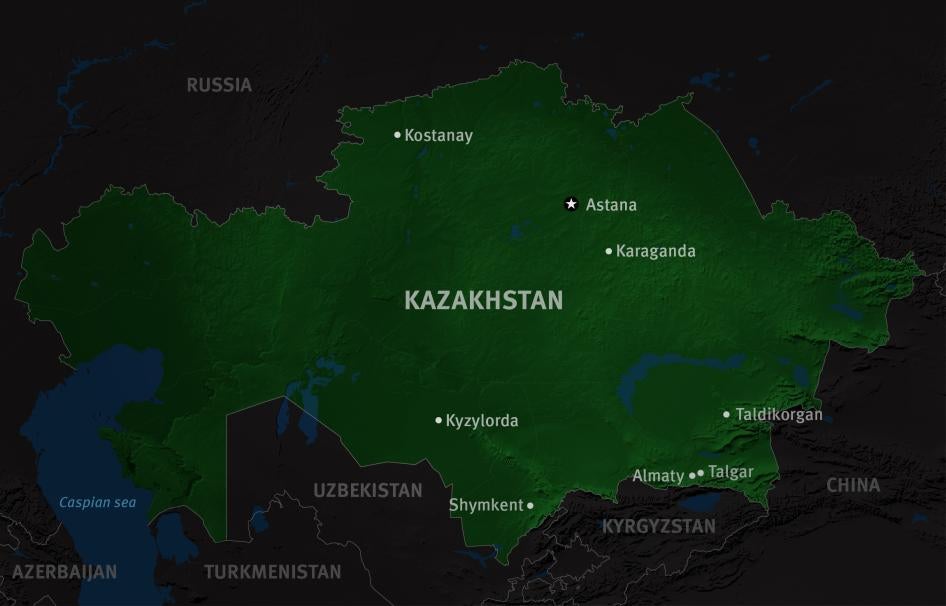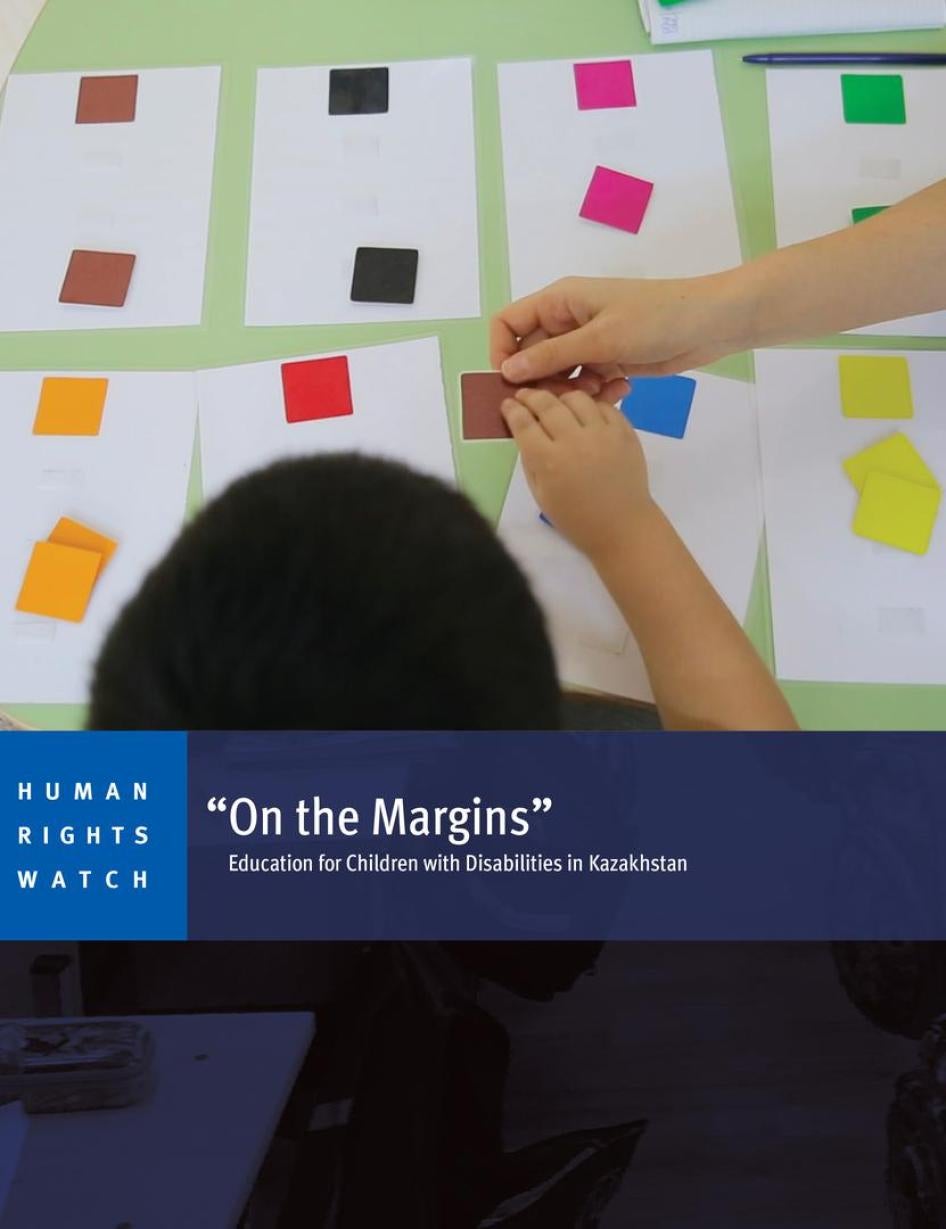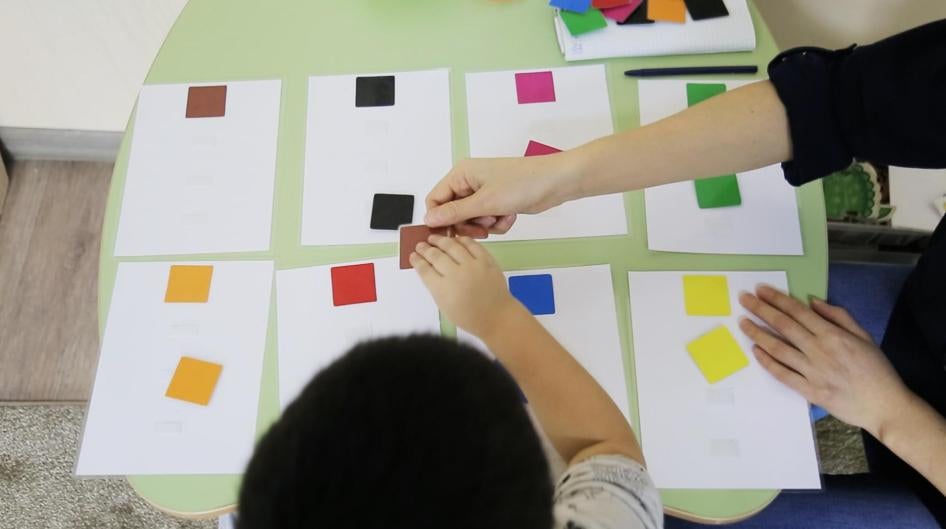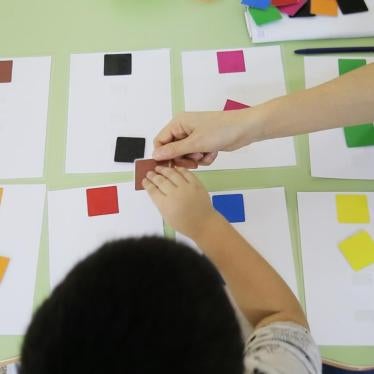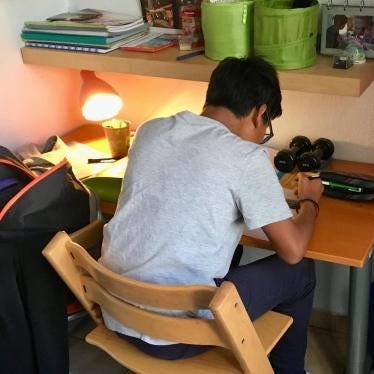Why did you focus on Kazakhstan for this report?
The Kazakh government has committed to improving education opportunities for children with disabilities, but so far we haven’t seen that commitment lead to meaningful change. We wanted to better understand why children with disabilities aren’t accessing the same education opportunities as their peers, to be able to provide concrete recommendations on ways the government can ensure all kids have the access to the inclusive education they deserve.
What commitments has the government made already?
Kazakhstan has pledged to make 70 percent of schools inclusive by 2019. It also ratified the International Convention on the Rights of Persons with Disabilities in 2015. It’s an international treaty that requires Kazakhstan to change its own laws and practices to make sure the rights of people with disabilities are respected. The government has also taken some steps domestically to address the issue, for example, by increasing the number of special education teachers in some mainstream schools.
Why is inclusion important for children?
Inclusion in school is the first step to inclusion in society and to combatting discrimination. We talked to several parents whose children are in inclusive education, and all of them were very positive about their children learning and playing with other children, with and without disabilities. They talked about better communication skills and how children learn by watching each other. Even with the problems that exist, parents felt that being in an inclusive environment was having a positive impact on their children, and they were excited about that.
That all sounds great, so what are the problems?
For a start, not very many kids with disabilities are actually enrolled in mainstream inclusive schools.
A key barrier to inclusive education is a body of medical workers and education specialists, called Psychological-Medical-Pedagogical Consultations (PMPK), which I know is kind of a mouthful. The PMPK assesses kids with disabilities and makes recommendations about what kind of education they should get. Our research found that many children are still not able to access quality, inclusive education in mainstream schools, because PMPKs usually recommended home education or education in segregated schools for kids with disabilities.
Kids who are able to enroll in mainstream schools face other challenges, including physical accessibility and a lack of qualified staff. It’s not enough for Kazakh authorities to designate a school as “inclusive.” Children need to be able to access the individual supports they need to participate and succeed in school.
Tell me more about the PMPK?
Our concern is that these commissions are determining whether children have access to schools through a medical lens, rather than focusing on what supports each individual child would need to succeed in a mainstream school environment. The commission’s default position should be that kids belong in school. Sadly, and wrongly, it’s not. Instead, the commission currently serves as a gatekeeper, deciding whether a child can go to school in the first place, not what is needed to support them so they can go to school. That’s just not right.
The authorities should take a holistic approach when assessing a child’s abilities, and invite the perspectives of people who know the child well to determine what accommodations a child needs in order to go to school and get an education on an equal basis with others.
What are the assessments like?
Many parents described assessments as rushed, and in some cases superficial or even hostile. For example, experts only asked the child or parent a couple of questions or tried to see if children could do one simple task before making a determination. In an extreme case, one child was assessed for only about five minutes.
We also heard that parents had to queue – sometimes for hours at a time – before they were seen by the commission, so there was chaos in the queue. The parents didn’t really have any way to engage their children, so by the time they were actually invited in to see the commission, the kids were agitated or tired. Their parents were concerned that affected the assessment.
There are other issues as well. There was a woman called Irina whose 10-year-old son Andrey has autism. He spent the first grade being taught at home. Irina told me ‘no one [at the PMPK] told us anything about inclusive education. [Had we known] we would have requested inclusive education for him, of course.’ Andrey is in mainstream school now, but it wasn’t even raised as an option in his first assessment.
Another mother told us that assessors would say insulting things like “He can’t do anything” in front of the children.
There is tacit acknowledgement that there are problems with the PMPKs, and the government is currently expanding the network of PMPKs. But that doesn’t get at the fundamental problem, which is that the PMPK takes a medicalized approach to assessing children with disabilities, and it serves as a barrier for accessing inclusive education.
What’s the underlying cause of these issues?
A comment that we’ve heard from a number of experts is that authorities don’t seem to understand what it means to access an inclusive education. That’s something I hope this report will help articulate, showing how the government can provide reasonable accommodations for children to be included in their communities, and in their neighborhood schools, to have the best prospects for their future.
There’s another problem in that historically in Kazakhstan, as part of the Soviet Union, children with disabilities were almost entirely hidden away from society. Kazakhstan is moving away from that attitude, which is incredibly important. But there’s still broad stigma.
What is being done to create change?
Parents are advocating to get the best for their children, including by fighting to get their kids into mainstream schools. It was really a privilege to meet parents all over the country who had organized groups to support their children, sometimes by setting up resource centers offering a range of services. A number of the parents we interviewed also spoke about how it was difficult to get basic information about their child’s disability from medical workers, and how they turned to other parents for information.
Did anyone you meet stand out to you?
There was one young man we interviewed who made a lasting impression. “Madiyar” was 23 when we talked to him. Madiyar has cerebral palsy and was home educated, which is not unusual for children with cerebral palsy in Kazakhstan. He didn’t come from economic privilege, but had parents and older siblings who made sure to include him in routine activities, like when they went out, for example. After he finished school, he decided he wanted to attend university, just like his siblings had. So, he did.
In a place like Kazakhstan, where it’s rare to see people with disabilities on the street, this young man, who went to university and now has a job, is battling the stigma people with disabilities face just by living his life.
By contrast, I met another young man with cerebral palsy who was 28 when we interviewed him. He was home educated, and it was just him and his mum. Unlike Madiyar, he is unable to walk on his own. He hasn’t gone outside in 18 years. Not only was he denied an education in his community, he was – and remains – isolated from society.
It’s the government’s responsibility to ensure that people with disabilities don’t face that kind of isolation, but instead get the support they need to be in society equally with others.
What do you hope to achieve with this report?
I’m hoping the government will see our report as a resource to help them build on some of the initial progress that’s been made. I hope they take seriously the recommendations we’ve put forward, and make sure more children in Kazakhstan actually get a quality, inclusive education.
And what do you hope for the children you met along the way?
What I want for them is what I want for all children. And it’s not just what I want, it is the rights to which they are entitled! To get a quality education, be part of their communities, not to face discrimination or stigma, to know that their place is in society and that there’s a system in place that supports them.
